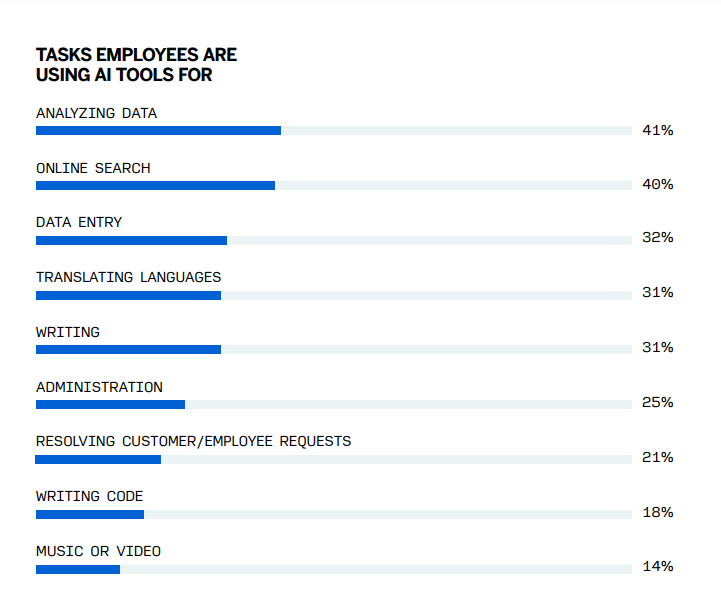‘A strong employee experience is a competitive advantage in realizing AI’s potential,’ says Qualtrics’ Chief Workplace Psychologist
Here’s how to build trust and reap those productivity gains from AI, according to new data from experience management giant Qualtrics.
News In Brief
Productivity is top of mind for businesses.
They think AI will be a silver bullet, but new research from Qualtrics finds that currently isn't the case.
Read on to find out exclusively from Qualtrics' Chief Workplace Psychologist Dr Benjamin Granger why building trust and engagement around AI is key to productivity success now and into the future.
Productivity is top of mind for every organization right now – and they see AI as a missing piece of the productivity puzzle.
According to new data from experience management giant Qualtrics, the issue is that this surge in productivity as a result of AI is easier said than done.
While 45% of 35,000 employees from across the world surveyed by Qualtrics are using AI tools daily or weekly, they are using them in different ways to how organizations might expect.
Qualtrics data found that only 27% of employees plan to use the time saved by AI to actually increase the amount of work they product.
They are more likely to use the time to improve the quality (47%) of their work and be more efficient (42%).

Qualtrics’ report: State of AI in Employee Experience
This misalignment highlights a need for clear communication and expectation-setting around AI usage,” Dr Benjamin Granger, Chief Workplace Psychologist at Qualtrics, exclusively tells UNLEASH.
Fixing the trust gap will drive AI use
Central to this misalignment on AI usage is trust, according to Qualtrics’ data.
Only 57% of employees trust their bosses to implement AI effectively, and just six in ten think that decision makers understand the new technology.
For Dr Granger, this trust gap is “one of the most striking findings from our study”.
He tells UNLEASH: “Building trust requires leaders to actively demonstrate their commitment to employee wellbeing, such as communicating the mutual benefits of AI adoption and setting ethical guidelines and guardrails to protect employees and customers alike.”
Currently only 52% of employees surveyed said their employer had clear principles and guidelines around AI.
Dr Granger recommends that “organizational leaders should focus on creating open, ongoing dialogue with employees – opening up lines of communication to discuss fears, concerns, and opportunities”.
Ultimately, if employers focus on getting employee experience and engagement right, they will do better when it comes to AI and productivity.
HR teams specifically have a huge role to play here; Qualtrics’ report stated: “Successful AI transformation might seem like a technology problem, but underneath the complexity, it really is a human experience challenge and solution”.
The data found that workers with good employee experiences were 3.8 times more likely to trust their bosses to implement AI, are 2.2 times more excited about AI, and are 2.7 times more likely to use AI frequently at work.
A strong employee experience isn’t just a driver of employee satisfaction – it’s a competitive advantage in realizing AI’s potential,” concludes Granger.
Sign up to the UNLEASH Newsletter
Get the Editor’s picks of the week delivered straight to your inbox!

Chief Reporter
Allie is an award-winning business journalist and can be reached at alexandra@unleash.ai.
